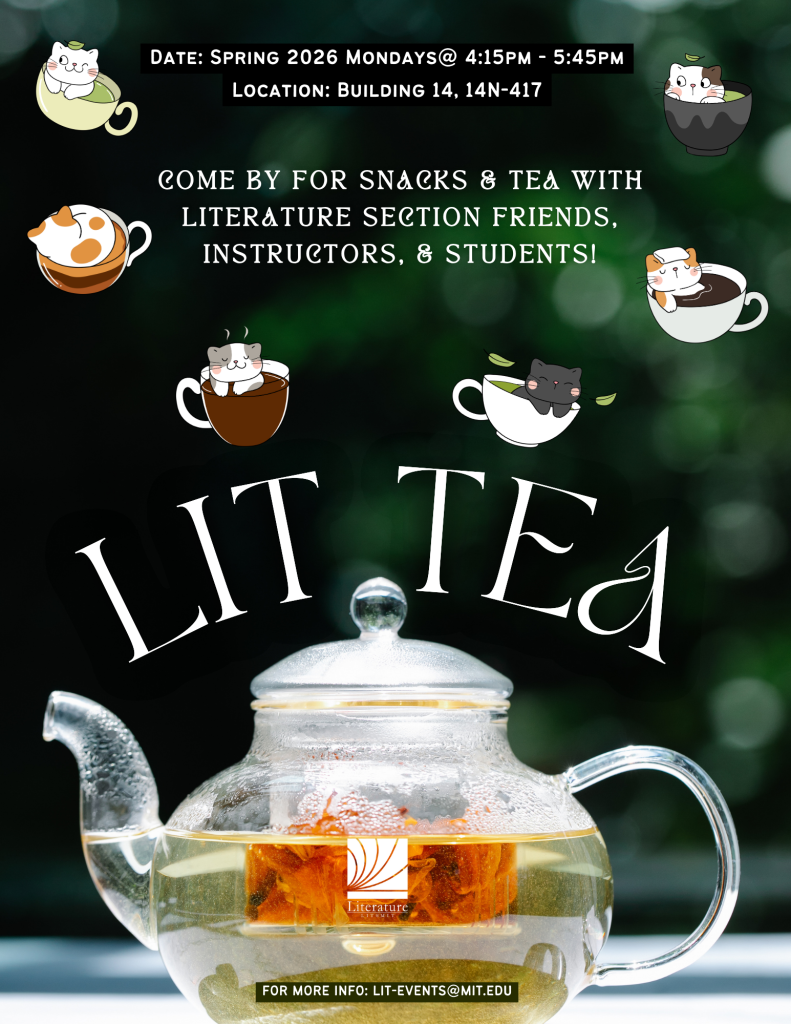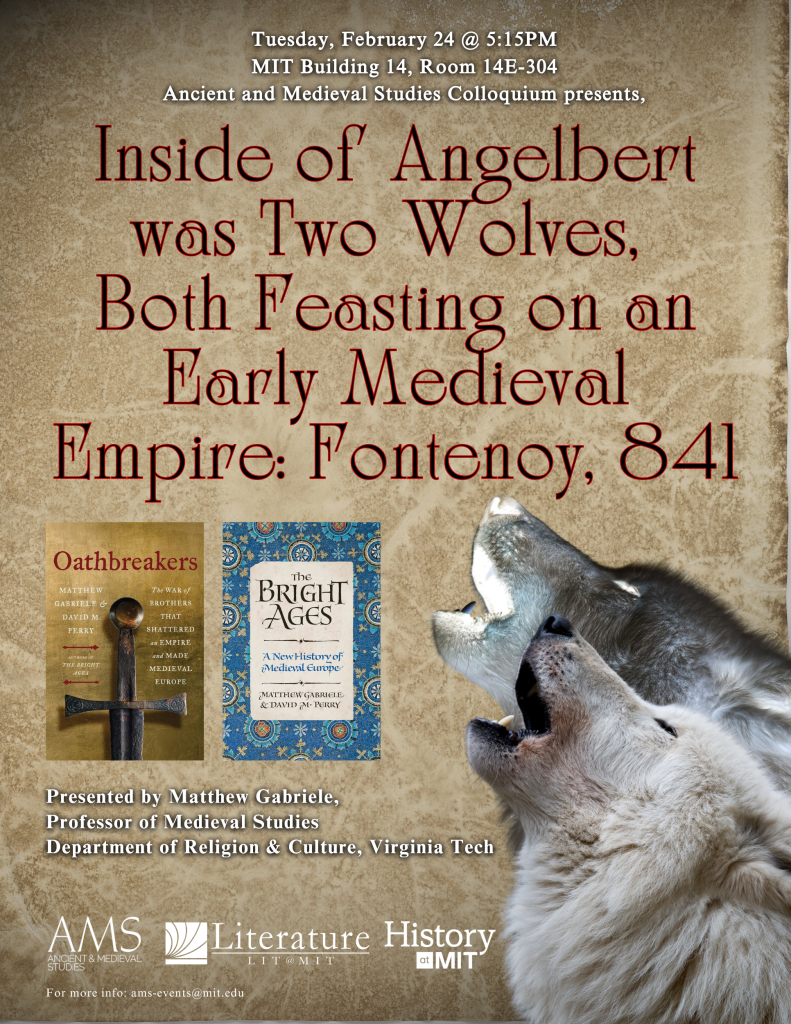Events

- This event has passed.
Ancient & Medieval Studies Colloquium presents, Megan Cook “Dirtbag Medievalism or, Medievalism Without the Middle Ages”
November 21, 2024 @ 5:15 pm - 6:00 pm
 Abstract: This paper asks how the concept of “the medieval” functions differently than other historical periods by focusing on “minor medievalisms”—those allusions to and invocations of the Middle Ages that are so fully integrated into everyday life and the accoutrements of commercial and popular culture that we can easily miss them. Medievalism everywhere when you start to look for it: advertising underwear and fast food, interwoven into reality television and prog rock, and offering a reliable visual vocabulary for goths and heavy metal fans. I argue that these often-overlooked cultural forms express a distinctive kind of attitude toward the Middle Ages, which I call dirtbag medievalism, in which historical accuracy is a much less important concern than aesthetic and emotional resonance. Superficial and self-referential, dirtbag medievalism provides a lens for rethinking how we as scholars, teachers, and fans understand and respond to the Middle Ages in popular culture today.
Abstract: This paper asks how the concept of “the medieval” functions differently than other historical periods by focusing on “minor medievalisms”—those allusions to and invocations of the Middle Ages that are so fully integrated into everyday life and the accoutrements of commercial and popular culture that we can easily miss them. Medievalism everywhere when you start to look for it: advertising underwear and fast food, interwoven into reality television and prog rock, and offering a reliable visual vocabulary for goths and heavy metal fans. I argue that these often-overlooked cultural forms express a distinctive kind of attitude toward the Middle Ages, which I call dirtbag medievalism, in which historical accuracy is a much less important concern than aesthetic and emotional resonance. Superficial and self-referential, dirtbag medievalism provides a lens for rethinking how we as scholars, teachers, and fans understand and respond to the Middle Ages in popular culture today.
Bio: Megan Cook teaches medieval literature and book history at Colby College in Waterville, Maine. She is the author of The Poet and the Antiquaries: Chaucerian Scholarship and the Rise of Literary History, 1532-1635 (Penn, 2019). With Elizaveta Strakhov, she is the co-editor of John Lydgate’s Dance of Death and Related Works (Medieval Institute Publications, 2019) and, with R.D. Perry, co-editor of a new critical edition of Chaucer’s Legend of Good Women. In 2023, she co-edited, with Megan Heffernan, a special issue of Huntington Library Quarterly on histories of the premodern miscellany. Her work on the fate of Middle English texts and books in the early modern period has appeared in Spenser Studies, Chaucer Review, Manuscript Studies, Studies in Philology and elsewhere.
Image: “The Tales of King Arthur,” Peter Pracownik, 1998.
Related Events
Literature Section
Massachusetts Institute of Technology
77 Massachusetts Avenue 14N-407
Cambridge, MA 02139
tel: (617) 253-3581


